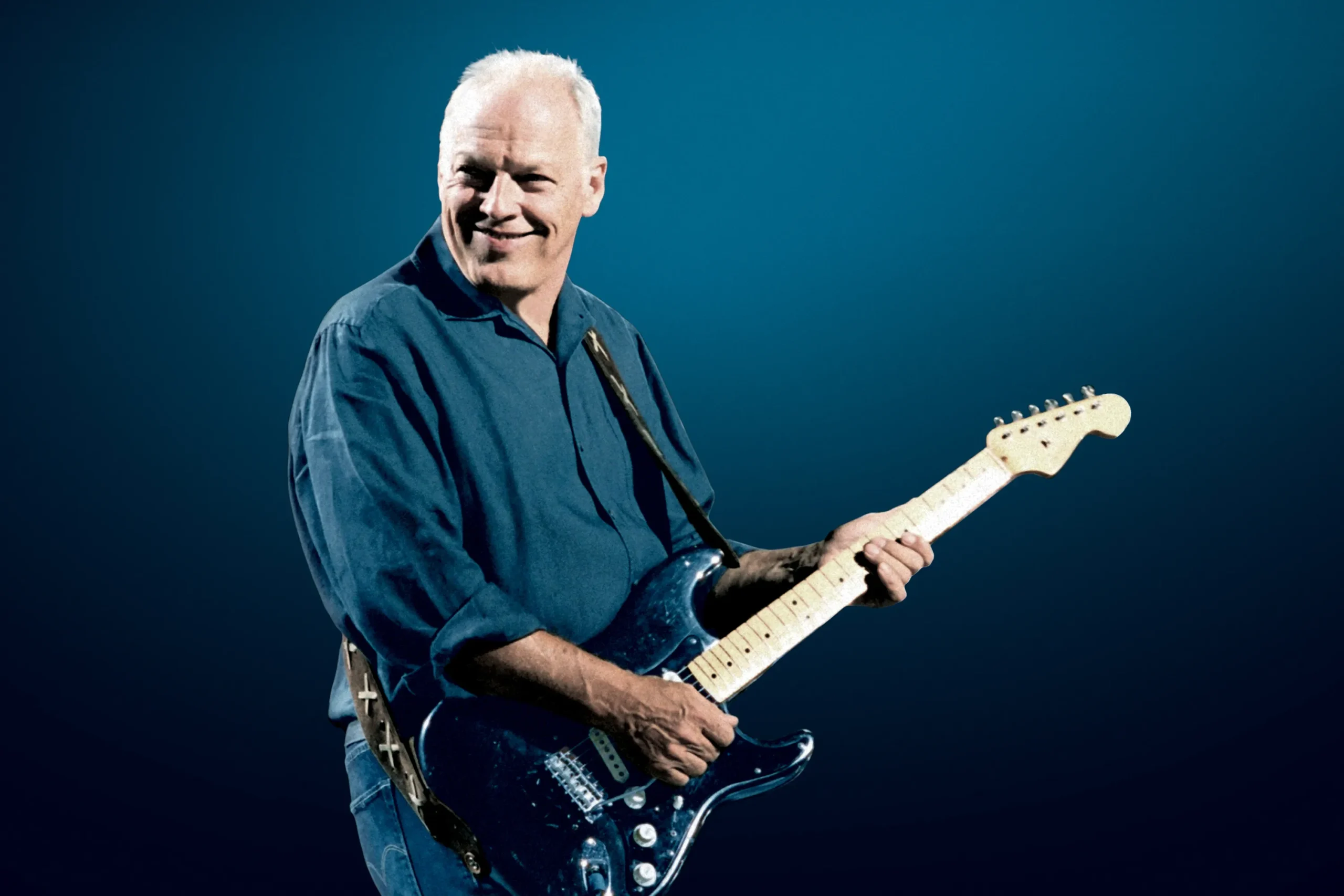Recording studios are often romanticized as sanctuaries of invention—rooms where timeless music is born. Yet, those same control boards and tape machines can also turn into instruments of loss. Few musicians know that truth better than David Gilmour, whose unforgettable guitar work defined Pink Floyd’s sound. But during the creation of Animals in 1977, one of his finest moments on tape simply vanished.
A Critical Period in Floyd’s Journey
By the mid-1970s, Pink Floyd was riding a creative high. Wish You Were Here (1975) had cemented their reputation, and The Wall (1979) was still on the horizon. Sitting between these milestones was Animals, the band’s 10th studio album—a politically charged, musically ambitious project.
The track “Dogs,” running over 17 minutes, was the centerpiece. It set the tone for the album with a hypnotic groove, cutting lyrics from Roger Waters, and soaring guitar passages from Gilmour. But behind its polished surface lies a story of carelessness, frustration, and a permanent scar on Floyd’s history.
The Vanishing Solo
In a recent conversation with producer Rick Beato, Gilmour recalled how the disaster unfolded. The band was working on “Dogs” across multiple sessions, stitching together sections with leader tape—the blank strip used to separate recorded parts.
At some point, Waters and drummer Nick Mason attempted to erase a section. The machine, however, remained in “erase” mode as they rolled past the leader tape, wiping out Gilmour’s second solo in the process.
“There it went—completely gone,” Gilmour said, still sounding pained decades later. “It was one of those things you can never get back.”
What survived was a supporting guitar track beneath the solo, and thankfully, Gilmour had taken home a rough mix. Using that as a reference, he recreated the lost part. But in his words, the magic of the original was gone: “Every note was there, but it just didn’t feel the same.”
A Father, A Musician, A Balancing Act
Part of the reason Gilmour wasn’t hovering over every detail was timing. He had just welcomed his first child, leaving him less immersed in the day-to-day grind of studio life. That opened the door for others in the Floyd circle to step in, including Snowy White, who had recently joined the band’s live setup.
White recalled being pulled into the studio almost casually: “Roger said, ‘While you’re here, play something on this track.’ I grabbed one of Dave’s Stratocasters and laid down a solo.” His contribution ended up on the eight-track cartridge edition of Animals, though not on the main vinyl release.
Echoes Beyond Animals
The incident with “Dogs” wasn’t the last time external guitarists left fingerprints on Floyd’s catalog. Nearly a decade later, Roxy Music’s Phil Manzanera contributed a demo that was transformed into a track for A Momentary Lapse of Reason (1987). It showed how Pink Floyd, even as a tight-knit band, occasionally drew from outside sparks when navigating transitional times.
Gilmour, Hendrix, and Ongoing Inspiration
Beyond the lost solo, Gilmour also reflected with Beato on witnessing Jimi Hendrix live for the first time. He remembered being floored by Hendrix’s playing, rushing out to find his records the very next day—only to realize they weren’t even in stores yet. That mix of awe and pursuit became part of Gilmour’s own musical DNA.
Today, the guitarist continues to create. His 2023 release Luck and Strange earned praise as his strongest solo work since The Dark Side of the Moon era. Unlike previous decades, where long silences separated his records, Gilmour insists he won’t let so much time pass before the next one.
A Lesson From the Studio
The erased solo from “Dogs” remains one of those tantalizing what-ifs in rock history. Would the original have been even more iconic than what fans know today? No one will ever hear it. Yet, perhaps that loss is part of Pink Floyd’s mystique: brilliance born from chaos, imperfection woven into genius.
In the end, Gilmour’s story is both a cautionary tale and a reminder. Studios may preserve music forever—but they can also erase it in seconds.

